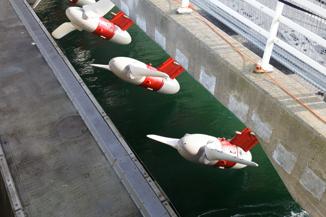The Procurement Act 2023 is currently set to come into force on 24 February 2025. While the Act applies to public sector authorities in England, Wales and Northern Ireland, there are several Welsh-specific exemptions or differences to the rules which apply to English authorities.
This update summarises what suppliers to the public sector in Wales need to know; and highlights any differences between the default position in the Act and procurement in Wales.
Notices and transparency
The default position:
Under the current procurement regime, notices are largely focused on the start and end of a procurement process. There are minimal obligations to issue notices during contract performance unless specific circumstances require it. However, the Act brings a heightened focus on transparency across the entire contracting lifecycle, with notices being required to be published, on a new central digital platform, from the planning stage through procurement, performance and even termination of a contract.
Wales:
The same position applies in respect of notice publication requirements except that:
- notices will be published on Sell2Wales and this will feed into the central digital platform;
- English authorities are required to publish the names of unsuccessful bidders in contract award notices where a contract has a value exceeding £5 million but Welsh authorities are not required to do this; and
- English authorities are required to publish copies of contracts which have a value exceeding £5 million but Welsh authorities are not.
Impact for suppliers in Wales:
- Transparency in Business Planning: Suppliers will have more opportunities to monitor key contracts and identify when contracts are nearing re-procurement. This can provide valuable insights for forecasting and business planning.
- Performance Visibility: Any performance issues will be publicly available on Sell2Wales and the central digital platform. Suppliers should ensure they are confident in meeting contract requirements to avoid potential reputational damage in future procurement opportunities.
Procedures and direct award
One of the most notable changes under the Procurement Act 2023 is the reduction in procurement procedures from seven in the current procurement regime to three in the Act. This will offer more flexibility for contracting authorities to tailor procedures to specific contracts. The procedures in the Procurement Act 2023 are:
- Open: A single-stage procedure, similar to that in the current procurement regime;
- Direct Award: Allows authorities to award contracts without competition. Again, similar to the process in the current procurement regime but will require publication of a transparency notice before the contract is executed.
- Competitive Flexible: A "build-your-own" procedure which allows contracting authorities to design the procurement process to suit the specific needs of a contract.
In carrying out procurement pursuant to the Act, Welsh authorities must have regard to the Wales Procurement Policy Statement. This differs from the default position and National Procurement Policy Statement which applies to procurement in England.
Impact for suppliers in Wales:
Aside from the different procurement policy statements, there are not material differences between the default position and that which applies in Wales, so suppliers in Wales should:
- Training: Ensure their bid teams are fully-aware of the incoming changes to public procurement procedures, especially as these may vary across different contracting authorities in Wales and beyond. Understanding the potential for multiple nuances and variations with the competitive flexible procedure is particularly important.
- Pre-Market Engagement: Take advantage of the opportunity to provide input on how procedures could better reflect local business practices, as pre-market engagement is encouraged in the Act.
Exclusion and debarment
The Act introduces a central debarment list, detailing suppliers who have been excluded from public procurements as a result of mandatory or discretionary grounds. The exclusion grounds themselves remain broadly similar to the current regime, excluding suppliers from procurement for three or five years depending on the severity of the ground.
Impact for suppliers in Wales:
There is no difference between the default position and that which applies in Wales, so suppliers in Wales should:
- Supply Chain Checks: Conduct due diligence not only on their corporate structure but also on their supply chains to ensure compliance with exclusion grounds. Suppliers that fail to meet environmental or specified standards may be excluded from future procurement.
- Preparation: Ensure they have a team or process in place to quickly challenge or appeal any debarment decisions, as exclusion from public procurement will have a long-term business impact.
Performance and changes
The Act introduces stricter regulations around contract performance. Contracts with a value greater than £5 million will now require contracting authorities to set at least three key performance indicators (KPIs), which will be reported on annually.
Impact for suppliers in Wales:
There is no difference between the default position and that which applies in Wales, but suppliers in Wales should:
- KPI Management: Ensure they can meet KPIs, especially those linked to regional social or environmental priorities, as failure to meet KPIs will be published publicly and potentially damage future business prospects.
- Access to Competitor Data: Take advantage of the detailed performance information which is published about competitors. This could assist with improvement of bid and performance strategies.
Challenge
The challenge process under the Act remains similar to the current regime, with suppliers required to issue challenges within 30 days of being aware of grounds to issue a claim. However, the Act introduces more stringent requirements for contracting authorities to provide feedback to unsuccessful bidders.
Impact for suppliers in Wales:
There is no difference between the default position and that which applies in Wales, but suppliers in Wales should:
- Managing Confidentiality: Flag commercially sensitive information in their bids to ensure they do not inadvertently disclose confidential business or bidding strategies.
- More Informed Challenges: Take advantage of the new feedback requirements and raise concerns where any inconsistencies or errors are identified.
Looking ahead
As we approach the go-live date, the Welsh Government is committed to providing ongoing support and resources to suppliers through the GOV.WALES page and the Sell2Wales page. Suppliers are encouraged to engage with the available 'Knowledge Drop' training videos, tailored specifically for SMEs and VCSEs, to ensure they are well-prepared for the changes ahead.
The Procurement Act 2023 represents a significant step forward in making procurement processes are more accessible, transparent, and efficient. By staying informed and proactive, suppliers in Wales can position themselves to thrive under the new legal landscape. If you would like to discuss anything in this update, or any other aspect of public procurement law and the incoming changes, please contact Bradley Martin below.
Key contacts

Bradley Martin
Partner
bradley.martin@brownejacobson.com
+44 (0)330 045 2483

Kathryn Balogun
Trainee Solicitor
kathryn.balogun@brownejacobson.com
+44 (0)330 045 2763









































